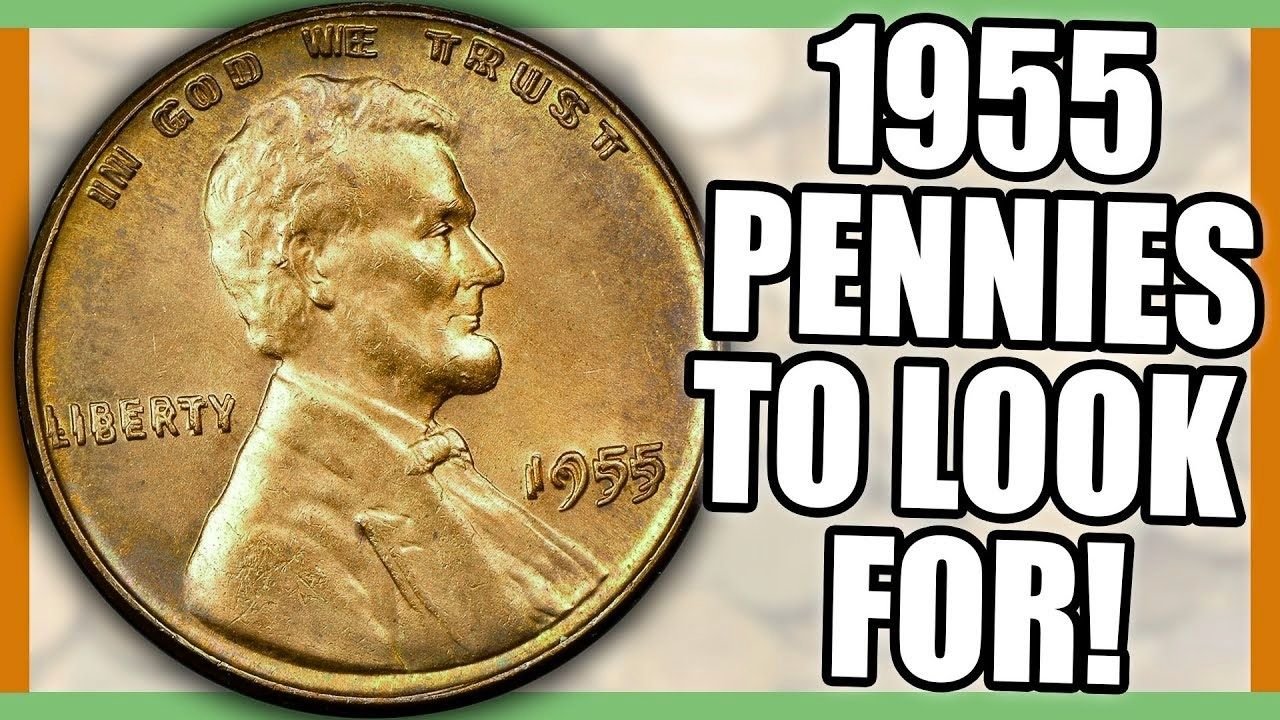A dusty old penny found in a sock drawer has turned into a treasure worth nearly a million dollars. The 1955 Lincoln Wheat Penny with a double die obverse, a rare minting mistake, was recently uncovered by a lucky person sorting through old belongings. This coin, once used for small change, is now valued at $925,000 due to its unique error and pristine condition. Collectors are buzzing, and regular folks are checking their stashes for similar finds. Here’s the scoop on this penny, why it’s so special, and how to spot one.
What Makes This Penny Special?
The 1955 Lincoln Wheat Penny is famous for a minting error called a double die obverse. During production, the machine stamped the design twice, slightly off, making the date, words, and Lincoln’s face look doubled. This mistake happened at the Philadelphia Mint, and only a small number of these coins got out. Collectors love them because they’re so rare, with some selling for over $1 million in top shape. The one found in the sock drawer is in great condition, boosting its value to $925,000 at recent auctions.
How to Spot a Double Die Penny
To find one of these valuable pennies, grab a magnifying glass.
Look at the date “1955” for a clear doubling, where numbers seem blurry or overlapped.
The words “LIBERTY” and “IN GOD WE TRUST” may also show doubling.
Lincoln’s portrait might have a shadow effect.
Check the coin’s color; a shiny red one is worth more than a dull brown one.
Don’t clean it, as that can ruin the value. If you spot these signs, get it checked by a coin expert.
Key Features of the 1955 Double Die Penny
Here’s what to look for to know if your penny is the real deal. These details can mean the difference between pocket change and a fortune.
| Feature | Description |
|---|---|
| Double Die | Blurry or doubled date, text, or portrait |
| Color | Red is best, brown is less valuable |
| Mint Mark | No mark (Philadelphia Mint) |
| Condition | No scratches or wear, shiny surface |
How Did It End Up in a Drawer?
Mint errors like this happen when machines mess up during production. In 1955, a faulty die at the Philadelphia Mint created these doubled images. Some of these pennies slipped into circulation, landing in pockets, cash registers, or drawers. The recent find was tucked away in a sock drawer, likely forgotten for decades. Stories like this spark excitement, as they show rare coins can hide anywhere, from old jars to family keepsakes.
What to Do If You Find One
If you think you’ve got a 1955 double die penny, handle it with care.
Place it in a soft plastic holder to protect it.
Take it to a trusted coin dealer or grading service like PCGS or NGC for verification.
They’ll confirm the error and grade its condition.
A top-grade coin could sell for hundreds of thousands at auction.
Selling through a reputable auction house or dealer is the best way to get a fair price. The market for these pennies is strong, with collectors eager to pay big.
Value Breakdown
The $925,000 price tag is for a penny in near-perfect condition with a bright red color. Lesser grades or worn coins still fetch good money. Here’s a quick look at what different conditions might bring.
| Condition | Estimated Value |
|---|---|
| Red, Near Perfect | $500,000–$925,000 |
| Red, Some Wear | $10,000–$50,000 |
| Brown, Good Shape | $2,000–$10,000 |
| Brown, Worn | $500–$2,000 |
Why Collectors Are Excited
This discovery has coin hunters buzzing across the country. People are digging through old collections, change jars, and even sock drawers, hoping to find their own treasure. Online forums and coin clubs are sharing tips on spotting these pennies. Even if you don’t find a double die, other 1955 pennies with minor errors can still be worth hundreds. This find reminds everyone that a small piece of change can turn into a life-changing sum. So, check those pennies; you might be holding a fortune.
